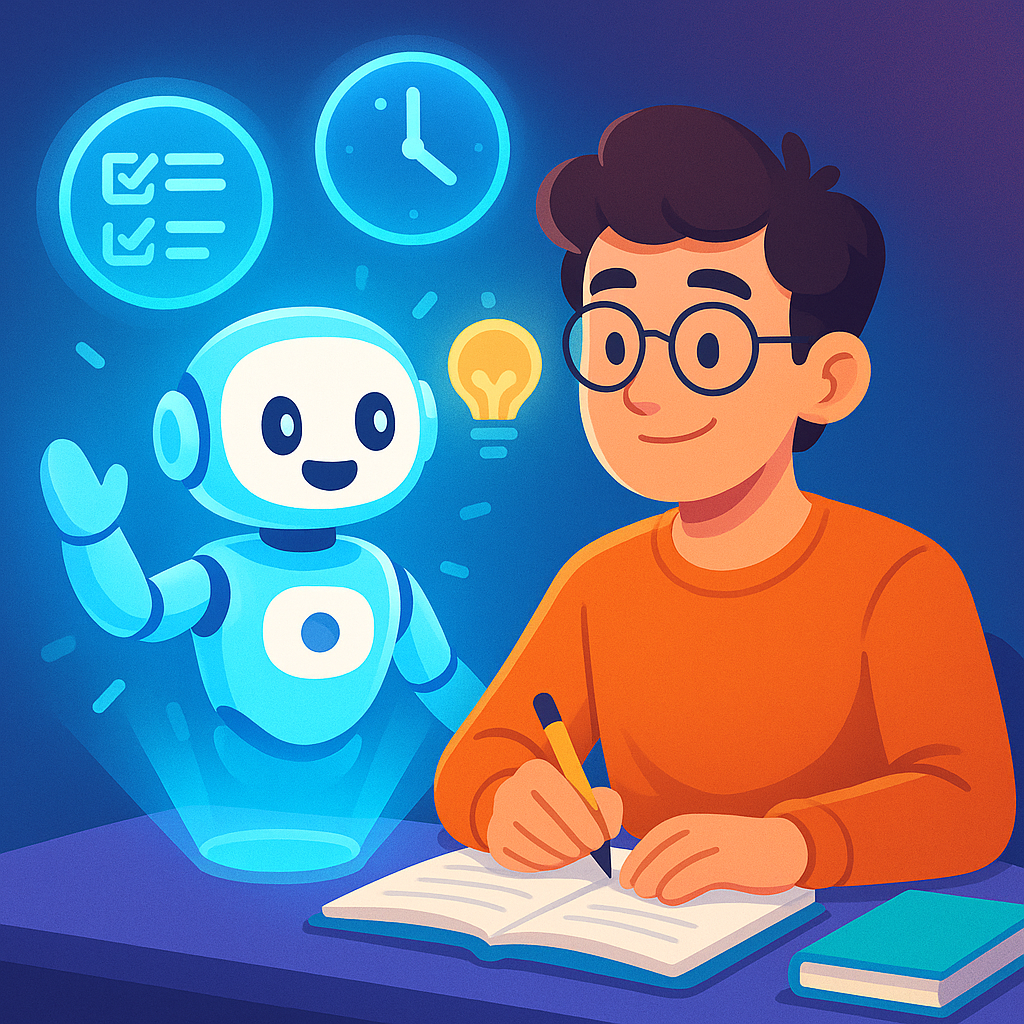In today’s rapidly evolving digital world, Artificial Intelligence (AI) has become an indispensable tool for students. From enhancing productivity to providing personalized learning experiences, AI tools can revolutionize the way you study. However, it’s essential to use AI ethically to maintain academic integrity. Below, we’ve curated the top 10 ethical AI hacks every student can use to elevate their learning experience.
1. Streamlined Research with AI Assistants
AI tools like ChatGPT and Google Scholar can assist students with finding research materials, summarizing articles, and providing topic overviews. These tools help sift through vast amounts of data quickly, enabling students to access relevant academic sources efficiently. It’s important to always properly cite AI-generated content for credibility.
2. AI-Powered Note-Taking
Tools like Otter.ai and Sonix use AI to transcribe lectures in real-time. These platforms allow students to focus on understanding the material instead of worrying about missing key points. After the lecture, students can easily review the transcriptions. Just be sure to verify the transcriptions for accuracy and supplement them with your personal insights.
3. Writing Assistance with AI
AI writing assistants such as Grammarly and ProWritingAid help refine drafts by catching grammar errors, improving sentence structure, and suggesting style improvements. These tools can help students enhance their writing but are meant to assist—not replace—the student’s original work.
4. AI for Personalized Flashcards
When studying for exams, apps like Anki and Quizlet use AI to generate personalized flashcards based on your knowledge gaps. These platforms create quizzes that target areas needing improvement, making study sessions more efficient and effective.
5. AI-Powered Mind Mapping
Mind mapping tools like MindMeister and Miro leverage AI to help students organize ideas and create dynamic, visual mind maps. These tools can suggest connections between topics, making it easier to structure thoughts and brainstorm ideas effectively.
6. AI for Language Learning
Language learning apps such as Duolingo and Babbel adapt to each student’s progress using AI. These platforms provide personalized lessons, ensuring students focus on areas where they need improvement, helping them learn a new language efficiently.
7. AI-Powered Time Management
AI tools like RescueTime and Focus Booster track study habits and offer suggestions for better time management. By analyzing patterns, these tools recommend when to focus, take breaks, or change study techniques, optimizing overall productivity.
8. AI for Problem Solving in Math & Science
Math and science apps such as Photomath and Wolfram Alpha use AI to solve complex problems and provide step-by-step explanations. These tools help students understand problem-solving methods, ensuring they learn rather than simply obtaining answers.
9. AI-Powered Research Paper Drafting
Writing research papers becomes easier with tools like Scrivener and AI Writer, which assist in organizing ideas and structuring documents. These platforms can offer helpful suggestions, but it’s essential for students to synthesize information and apply their own critical thinking.
10. AI for Career Guidance
AI-driven career platforms like LinkedIn’s career tools analyze a student’s skills and interests to suggest relevant career opportunities. These platforms provide personalized guidance, helping students identify potential job paths, required skills, and networking opportunities aligned with their goals.
To learn more about AI enroll to https://training.chimpvine.com/

